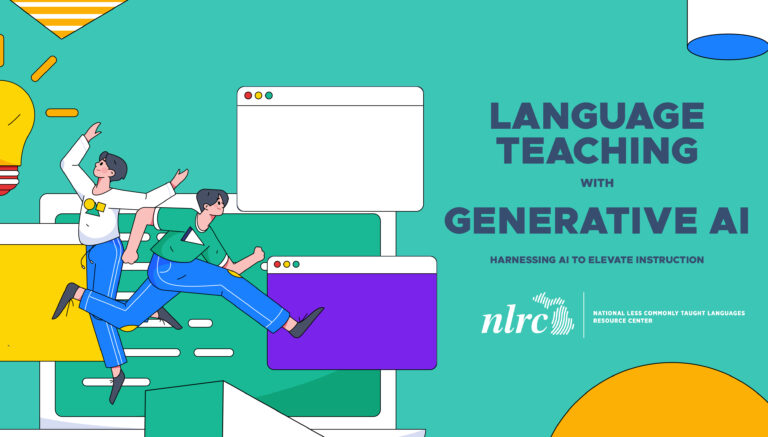Wikipedia Expands the Small LCTL Classroom
Guest Author: Lisa Gulesserian, PhD, Preceptor in Armenian at Harvard University and winner of the 2024 MAFLT LCTL Innovation Awards
In my daily life as a Preceptor on Armenian Language and Culture at Harvard University, it seems that not a day passes without a Wikipedia check. If I want to know the details of the differences between the two variants of Armenian, I check Wikipedia. If I want to learn about how tense, aspect, and mood can function in languages, I check Wikipedia. If I want to learn more about the French Armenian singer Charles Aznavour, I check Wikipedia. I have noticed that my students do the same—they turn to Wikipedia to know more about the world and to follow their interests. However, it was not until recently that I discovered that Wikipedia is an excellent tool for less commonly taught language instructors.
When I find a page that is interesting, I often check now to see if there is a Western Armenian edition of that same page by clicking on the “Languages” tab in the top right corner of that Wikipedia page.

I had been using Western Armenian Wikipedia pages in my classes to start in-class discussions where my students heard different perspectives about topics as varied as happiness or climate change.
However, last spring, when I was teaching the first semester of a year-long Advanced Western Armenian course at Harvard University, it was difficult to hear multiple voices and perspectives—I had the pleasure of having a single student in my class. I wanted to give this bright, dedicated, and motivated student more opportunities to communicate in an authentic way with others (besides me, her instructor) in Western Armenian, so I moved beyond using Wikipedia articles in my class and developed a two-part Wikipedia assignment that encouraged my student to contribute to knowledge available online in Western Armenian.
Part One was an in-class “Person Presentation,” while Part Two was a new Western Armenian Wikipedia page. My student chose Dwayne “The Rock” Johnson for the assignment.

For Part One, she began drafting her presentation and Wikipedia page after examining various Wiki pages for information and sections she needed to include on hers—together, we looked at Western Armenian Wikipedia pages for Ronda Rousey, Vin Diesel, and Paul Walker, noting the types of information included as well as the style and tone of the articles.
At the end of Part One of the assignment, my student presented her “Person Presentation” to me and another Armenian-speaking visitor in our class.
My student began Part Two of the assignment after receiving my rubric comments on her presentation. She submitted a draft of her Wikipedia page in a shared GoogleDoc where I provided feedback. After my student revised her Wikipedia page draft and published her revised Wikipedia page online, she received more comments and suggested edits by unknown Wikipedia editors on her work. Both editors of the page used Western Armenian to communicate with my student. By responding to and thanking her editors, my student collaborated in Western Armenian with other Wikipedia editors to edit and improve her work.

I was able to successfully expand my small LCTL classroom to include more Western Armenian voices—my student was able to engage in authentic interactions with her Western Armenian Wikipedia editors while expanding her writing and reading proficiency. She collaborated with others outside the classroom in our target language to finalize the product and create an authentic informational Wikipedia page in line with her own personal interests.
My assignment can be adapted for any LCTL that has a Wikipedia edition. In fact, even if a language does not have a Wikipedia edition yet, this assignment can be used to develop one. The Western Armenian Wikipedia edition was created on 1 April 2019 and has more than 11,500 articles already thanks to the wonderful work of editors around the world working together to develop and improve pages. Since Wikipedia is available in 339 languages and counting, it’s likely that there’s something written in the less commonly taught language you teach…and if there isn’t, why not collaborate with your students to start contributing to your own language’s Wikipedia now?

